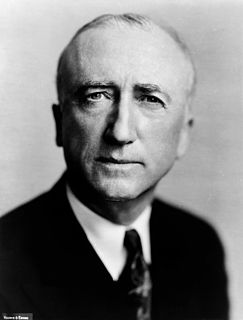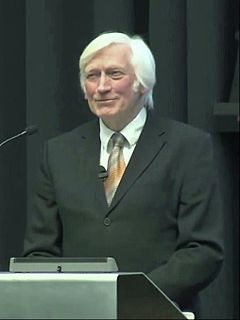A Quote by James F. Byrnes
Important as economic unification is for the recovery of Germany and of Europe, the German people must recognize that the basic cause of their suffering and distress is the war which the Nazi dictatorship brought upon the world.
Related Quotes
America felt victorious and generous after World War II. They had also learned from the mistakes after World War I when they imposed punishment on Germany. What became of Germany? A Nazi dictatorship which threatened the world. Today's Germany doesn't feel as prosperous and generous as America then. But actually, Germany still is very prosperous.
The Thirty Years' War, 1618-1648, was a series of conflicts that became the last great struggle of religious wars in Europe. It was fought almost exclusively on German soil...but before the war ended, it involved most of the nations of Europe. The underlying cause of the war was the deep-seated hostility between the German Protestants and German Catholics - with the Jesuits and Cardinal Richelieu, who was the real ruler of France, fanning the fires to accomplish their ends.
It is sometimes suggested that the [Nazi economic] recovery was a product of a specific fascist economic strategy, which distinguished it from the recovery efforts of other capitalist states. While few would disagree that the Nazi regime had a number of clear ideological preferences when it came to the economy, the policies pursued in 1933 had much in common with those adopted in other countries, and with the policies of the pre-Hitler governments.
National Socialist Germany wishes for peace because it recognises the simple fact that no war would be likely to substantially to ameliorate the state of distress in Europe. The distress would probably be made the greater thereby. If only the leaders and rulers had wanted peace, the people would never have wished for war.
The people's community must not be a mere phrase, but a revolutionary achievement following from the radical carrying out of the basic life needs of the working class. A ruthless battle against corruption! A war against exploitation, freedom for the workers! The elimination of all economic-capitalist influences on national policy...Maintaining a rotten economic system has nothing to do with nationalism, which is an affirmation of the Fatherland. I can love Germany and hate capitalism. Not only can I, I must.
If the German nation wants to end a state of affairs that threatens its extermination in Europe, it must not fall into the error of the pre-War period and make enemies of God and the world; it must recognize the most dangerous enemy and strike at him with all its concentrated power. And if this victory is obtained through sacrifices elsewhere, the coming generations of our people will not condemn us.
Every movement that seeks to enslave a country, every dictatorship or potential dictatorship, needs some minority group as a scapegoat which it can blame for the nation's troubles and use as a justification of its own demands for dictatorial powers. In Soviet Russia, the scapegoat was the bourgeoisie; in Nazi Germany, it was the Jewish people; in America, it is the businessmen.
The first step to prescribing the right medicine is to recognize the cause of the illness. And, when it comes to what is ailing the global economy, extreme monetary easing has been more cause than cure. The sooner we recognize that, the stronger and more sustainable the global economic recovery will be.
Germany has become the economic heart of Europe because our leaders are weak. But Germany should never forget that France is Europe's political heart. What is happening here today foreshadows what will happen in the rest of Europe in the coming years: the great return of the nation-state, which they wanted to obliterate.































